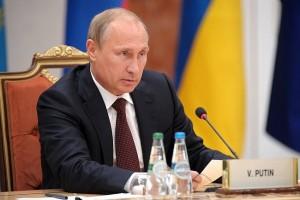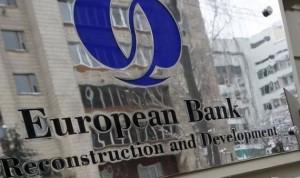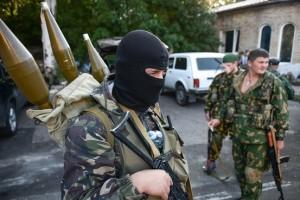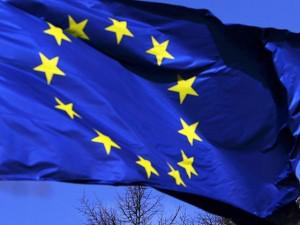Eurasian Economic Union and Ukrainian Crisis
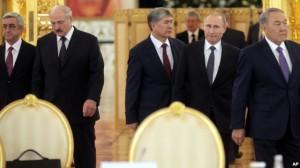
(VOA News) — The Eurasian Economic Union is headed for a rough start.
Officials from members of the economic alliance, which was modeled on the European Union and officially comes into effect January 1, met Tuesday in Moscow under the pain of Russia’s collapsing economy and the absence of Ukraine.
Western sanctions over Ukraine and a drop in the price of oil are pushing Russia’s economy into a recession that is also hurting its neighbors in the trade group.
But speaking after a meeting of the Supreme Eurasian Economic Council, Russia’s President Vladimir Putin voiced optimism that the trade bloc was making headway for its members.
Putin said a joint market was being created to act on the basis of the general rules of the World Trade Organization with more than 170 million consumers and a joint GDP of more than $4.5 trillion. Many customs and administrative barriers, he said, have been eliminated and business opportunities for realization of joint investment projects have expanded significantly.
The leaders of Belarus, Russia and Kazakhstan will launch the union in January, while Armenia is in the process of joining and Kyrgyzstan plans to join next year.
Former Ukrainian President Viktor Yanukovych was ousted from power this year in a popular uprising after he backed out of a European deal in favor of the Russian economic plan. Russia responded to Ukraine’s revolution with a flood of propaganda, annexation of Crimea, and support for armed rebellions in eastern Ukraine in fighting that has claimed 5,000 lives.
Kyiv’s Western-leaning leaders signed an association agreement with the European Union.
Ukraine further distanced itself from Russia when its recently elected parliament voted Tuesday to lift the nonaligned status that prevented it from joining NATO, the Western military alliance.
Ukrainian Foreign Minister Pavlo Klimkin, addressing the parliament in Kyiv, said that under the conditions of the current aggression against Ukraine, this law opens for them new mechanisms and new forms of realization of their goals of effective internal policy. Also, he said, the logic and philosophy of this law and its formulation coincides with the words of their friends and partners of the NATO alliance.
Russian officials denounced the move as threatening the peace process in Ukraine. Representatives of Russia, Ukraine and Russia-backed rebels are to meet Wednesday in Minsk for peace talks.
Political analysts say Russia’s backing of the rebels is aimed at keeping Ukraine unstable so it cannot join NATO, which does not offer membership to nations in conflict.
Before meeting in Moscow, the presidents of Belarus and Kazakhstan stopped in Kyiv for what political analysts said was an effort to balance relations between Ukraine and an increasingly assertive Russia.
Analyst Balazs Jarabik, a visiting scholar at the Carnegie Endowment for Peace, said Russia’s neighbors are looking more carefully at security and economic concerns.
«So, if Russia goes to hell and Ukraine goes to hell, then Belarus certainly will be the third to going to hell,» economically speaking, Jarabik said, and that is one reason why Belarusian President Alexander Lukashenko «is taking the center stage and trying to facilitate between the two countries.»
Jarabik also saw the three-way meeting in Kyiv as a sign that Belarus and Kazakhstan «are not buying the Russian propaganda and not buying what Russia is actually doing» in Ukraine and are seeing themselves as possibly «the next [target] of a Russian incursion or aggression.»
Moscow has also wanted greater control through a stronger union. Russian lawmakers, in addition to an economic alliance, wanted political and military ties, but Minsk and Astana insist the union remain only about economics.
They also refused to join Russia in temporarily blocking imports of European and North American food in retaliation for Western sanctions against Russia. The Kremlin responded with restrictions on transit of some products from Belarus it believed to be reimports of European goods.
The Belarusian ruble dropped 30 percent in value after Minsk introduced a 30 percent tax for purchasing foreign currency. On Tuesday, Minsk stopped all over-the-counter foreign currency exchange.
The measure was taken to try to prevent further devaluation in line with Russia’s ruble, which halved in value this year against the dollar. Lukashenko also declared his intention to stick with dollars for trading with Russia in a blow to the Kremlin’s hopes to one day unify the trade bloc under the Russian ruble.
Читать далее: IPnews
Putin says Russia not isolated over Ukraine, blames
(Reuters) — President Vladimir Putin blamed the West for worsening relations with Russia since the Ukraine crisis andEBRD: Ukraine crisis pushing Russia into recession
Russia’s economy looks certain to shrink next year due to the Ukraine crisis and eastern Europe is already seeing itsSecurity framework eyed as way out of Ukraine crisis
(Reuters) — Even as tension in Ukraine mounts anew, veteran diplomats are starting to think quietly about a way out ofWest holds off on Ukraine aid pledges, seeking reforms
(Reuters) — International lenders are delaying plans to offer Ukraine billions of dollars on concerns Kiev cannot yetНет комментариев.
Информация
Посетители, находящиеся в группе Гости, не могут оставлять комментарии к данной публикации.
